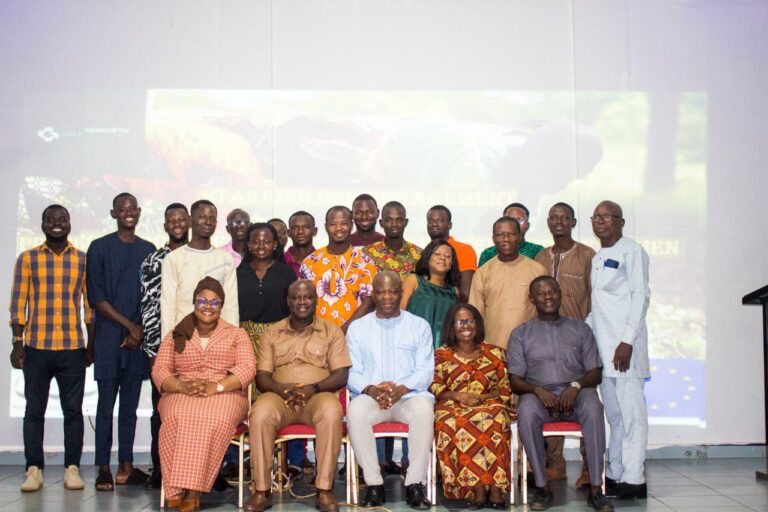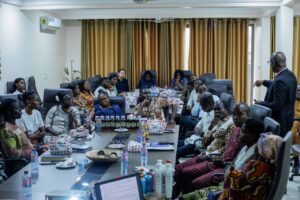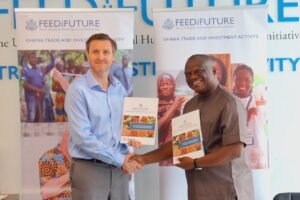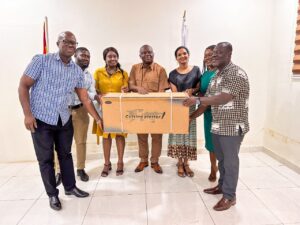A Stakeholder Engagement Meeting was held on May 23, 2024, to identify key concerns that need to be addressed for the successful implementation of the project. These include the need for consultation with the Ghana Enterprise Agency (GEA), the selection of participating districts, the focus on SMEs in resilient building sectors, and the consideration of the profit motive of targeted SMEs.
The team also highlighted the importance of radio and media sensitization, the involvement of women leaders, and the need for alternative livelihoods for small-scale mining businesses. Stakeholders have suggested various communities in the Upper East Region, Upper West Region, and Northern Region for the project. These communities have been identified based on their potential for various green and circular economy businesses. The project aims to engage these communities actively and effectively.
On May 24, 2024, a total of 14 enumerators were trained, with 5 from the Upper West region, 5 from the Northern region, and 4 from the Upper East region. The training covered the data collection instrument, green and circular economy businesses and sectors, and effective community entry strategies.
Several key figures have voiced their support for the project. The CEO of the GNCCI, Mark Badu-Aboagye, emphasized the potential of small-enterprise development in building resilience against climate change in agricultural communities. Rev. Dr. Christina Amarchey, a lecturer at the Presbyterian University, Ghana, stressed the importance of vocational training and skills development for youth employment in rural agricultural communities. Christopher Addy-Nayo, an expert with GNCCI, advocated for the promotion of green agriculture practices and circular products to rejuvenate depressed agricultural communities in the Northern Regions of Ghana.
Thirty-seven (37) participants from three regions attended the meeting: the Upper East Region (with districts: Kasena Nankana East/West, Bolgatanga Municipal, and Talansi District), the Upper West Region (with districts: Jirapa Municipal Assembly, Daffiama Busie Issa, Wa Municipal, and Sisala and representatives of the Upper West Regional House of Chiefs), and the Northern Region (with districts: Yendi Municipal, Tamale Metropolitan, Sagnarigu Municipal, and Tolon District). There are also representatives from NGOs (Ubernet Ghana, Action Aid Ghana, and Tree Aid Ghana).
The project’s overarching goal is to foster entrepreneurship, sustainable development, and improved prosperity for the most vulnerable and marginalized women and youth in these local communities. By focusing on these demographics, the project aims to maximize their contribution to growth, poverty reduction, and sustainable development.






